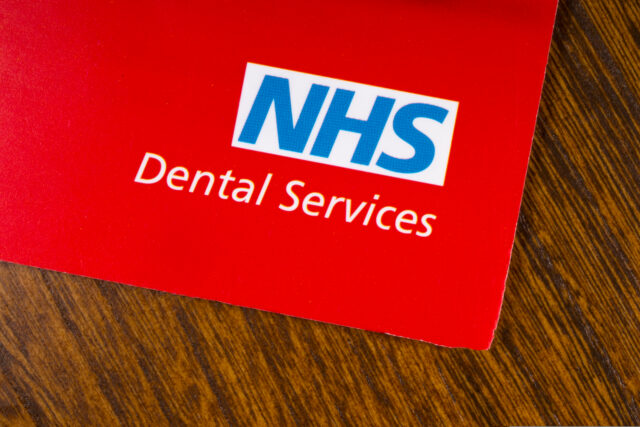Key Shifts in the NHS 10-Year Plan
1. From Hospital to Community-Based Care
The introduction of the Neighbourhood Health Service marks a shift in how patient care is delivered. Instead of hospitals being the first point of contact, local communities, neighbourhood hubs, and patients’ homes will play a bigger role.
This change aims to reduce unnecessary pressure on hospitals, improve access, and make care more convenient for patients. Community teams will include nurses, GPs, pharmacists, paramedics, and volunteers.
2. Greater Use of Digital Tools
The NHS App will play a central role in helping people manage appointments, medications, vaccinations, and long-term conditions. This digital shift aims to make the healthcare experience faster and more personalised.
3. A Focus on Prevention Over Treatment
Rather than treating illness after it arises, the NHS will focus on preventative healthcare. This includes:
-
Tackling tobacco and alcohol use
-
Expanding the Healthy Start programme
-
Supporting mental health in schools
-
Encouraging exercise through community initiatives
-
Boosting HPV vaccine uptake
-
Introducing genomic testing to identify risk early
What Does This Mean for NHS Dentistry?
Dentistry is vital to the success of these changes. Good oral health contributes to overall health, and poor dental hygiene can lead to serious medical issues.
The NHS plan includes:
-
Improving access to NHS dentistry
-
Enhancing children’s oral health
-
Making NHS work more attractive to dentists by reforming contracts
-
Requiring new dentists to serve in the NHS for 3 years
-
Expanding the roles of dental therapists
-
Rewarding care for high-needs patients
-
Cutting down on low-value activities
These changes will inevitably affect NHS dental nurses, opening doors to new responsibilities and professional development.
From the Background to the Frontline: Expanded Roles for Dental Nurses
One of the key proposals is to train dental nurses to apply fluoride varnish between check-ups, especially for children. While some nurses already perform this through self-funded courses or in public health initiatives like Scotland’s ChildSmile, it signals official support for expanding the role.
Why NHS Dental Nurses Deserve Recognition
1. Under-Recognition Affects Morale
Despite being fully qualified, GDC-registered professionals, many dental nurses feel overlooked in NHS policies and by patients.
2. A Key Workforce with Huge Potential
Dental nurses make up the largest group of dental care professionals. Their skill and clinical knowledge can:
-
Streamline appointments
-
Support preventive care delivery
-
Free up dentists for complex treatments
3. Addressing the Retention Crisis
Low pay, high workload, and limited advancement are driving nurses away from the profession. Investing in their growth could help reduce staff shortages.
4. Their Skills Are Already Expanding
Many nurses already handle radiography, decontamination, audits, and infection control—often without extra pay or recognition.
5. The Backbone of Dental Practice
Dental nurses play a key role in ensuring patient comfort, clinical safety, and team efficiency. Without them, the system would struggle.
6. Boosting the Whole Team
Empowering dental nurses improves workplace morale, retention, and patient experience—making the entire dental team stronger.
How Expanded Roles Will Benefit Dental Nurses
Supporting Healthier Mouths
By applying fluoride varnish and delivering oral health education, dental nurses can help reduce childhood decay and build lifelong habits. Around 28% of dental professionals believe patients lack basic oral health knowledge—nurses are ideally placed to close that gap.
Improving Workflow Efficiency
With around 41 million UK adults not visiting the dentist regularly, dental nurses can help practices run more efficiently by taking on routine tasks. This frees up dentists and reduces wait times.
Building Patient Trust
Patients often feel more relaxed around dental nurses, which can make them more receptive to preventive care like fluoride treatments. Nurses' interpersonal skills can also enhance patient communication during procedures.
Career Development
With more courses available, many dental nurses are actively seeking to expand their skills. Fluoride application and oral health education could be the start of a broader professional path.
Better CPD Opportunities
Expanding scope means greater value from continuing professional development (CPD), helping to motivate and retain dental nurses long-term.
Remaining Questions and Challenges
While the outlook is positive, some concerns remain:
-
Capacity: Many nurses are already managing heavy workloads.
-
Indemnity: Will additional skills require higher insurance costs?
-
Training: Who will deliver training, and will it be funded?
-
Deployment: Will nurses work only in practices or in the community too?
-
Pay: Will dental nurses be compensated fairly for added responsibilities?
As Preetee Hylton, President of the British Association of Dental Nurses (BADN), has highlighted, further clarity is needed—especially regarding dental nurse-led prevention programmes in high-need areas.
Final Thoughts: A Pivotal Moment for NHS Dental Nurses
The NHS 10-year plan offers a major opportunity to elevate the role of dental nurses in the UK. With the right investment in training, career development, and recognition, dental nurses could become central to achieving the NHS’s wider goals in prevention and community care.
It’s time to move dental nurses from the sidelines to the spotlight—where their skills, compassion, and experience can make the biggest impact.
Are you a dental nurse looking to expand your role?
Explore CPD courses, fluoride application training, and NHS career pathways designed to support your professional growth.



